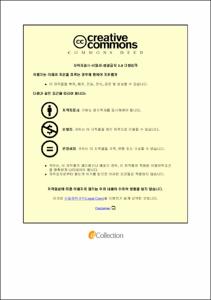Trichlorfon 노출에 따른 뱀장어(Anguilla japonica)의 체내 잔류량 및 독성 연구 수행
- Alternative Title
- Studies on residual amounts and toxicity in the eel(Anguilla japonica) following exposure to trichlorfon
- Abstract
- In this study, pharmacokinetic analysis was performed according to trichlorfon (TCF) exposure to obtain the data necessary for the establishment of maximum residue level (MRL) for eels, and the effect of TCF on drug metabolism and physiological function of eels was also investigated.
First, pharmacokinetic parameters of TCF were obtained in muscle, liver, and blood using the PK Solver program based on the results of measuring the drug residual concentration in the body according to the bath administration of TCF. In blood, muscle and liver, Cmax is 25.8698-357.421, 129.905-1043.73, 40.4662-375.198, Tmax is 0.1278-1.31581h, 1.18943-3.338h, 0.1361-5.39822h, and half-life(t1/2) is 2.12919-3.92153h, 5.29793-10.3544h, and 0.65284-13.8079h, respectively.
Second, the expression of the drug metabolism enzyme CYP450 gene was analyzed. TCF mainly expressed CYP 1 family genes in each tissue. AjCYP1A gene was mainly expressed in the heart and liver, AjCYP1B gene was mainly expressed in the brain, eye, and heart. On the other hand, AjCYP1C1 gene was expressed without differences between tissues.
Third, superoxide dismutase (SOD), catalase (CAT), glutathione-S-transferase (GST), acetylcholinesterase (AChE) and Cortisol activities were measured. The activities of antioxidant enzymes (GST, SOD and CAT) were maintained at a steady state without significant change, and AChE activity in the brain was significantly inhibited and recovered again. plasma cortisol levels, a stress index, increased as time elapsed after TCF administration, showing the highest levels between 30 minutes and 1 hour. After that, it began to decrease and returned to its original state.
Taken together, the results of this study indicate that TCF not only affects the drug metabolism process in eel, but also inhibits AChE activity, resulting in neurotoxicity.
- Issued Date
- 2021
- Awarded Date
- 2021. 2
- Type
- Dissertation
- Publisher
- 부경대학교
- Affiliation
- 부경대학교 대학원
- Department
- 대학원 수산생명의학과
- Advisor
- 정준기
- Table Of Contents
- 제 1장. Trichlorfon 노출에 따른 뱀장어의 체내 잔류량 및 약물 동태학 연구 1
1. 서론 1
2. 재료 및 방법 5
2.1. 실험 어류 및 대상 물질 5
2.2. 시약 및 기기 5
2.3. TCF 표준 용액 및 시약 조제 6
2.4. 항생제 투여 및 시료 채취 6
2.5. 시료 전처리 6
2.6. 기기 분석 9
2.7. 분석법 검증 11
2.8. 약동학적 해석 13
3. 결과 13
3.1. 직선성 13
3.2. 검출 한계(Limit of detection, LOD) 및 정량 한계(Limit of quantification) 및 회수율 15
3.3. Tricholorfon 약물에 대한 잔류 양상 18
3.4. 약동학적 해석 23
4. 고찰 30
제 2장. Trichlorfon이 뱀장어의 약물 대사 및 생리적 기능에 미치는 영향 36
1. 서론 36
2. 재료 및 방법 38
2.1. 실험 어류 38
2.2. RNA isolation and first-strand cDNA synthesis 39
2.3. Cloning of Anguilla japonica CYP1A, CYP1B, CYP1C1 39
2.4. AjCYP1 isoform의 염기서열 분석 44
2.5. Exposures, sampling and 전처리 과정 44
2.6. 항산화 효소 활성 45
2.7. AChE activity 47
2.8. Stress indicator(Cortisol) 47
3. 결과 48
3.1. 약물대사효소 유전자 서열 정보 확보 및 CYP1 family에서 조직 별 발현 양상 48
3.2. 항산화 효소 활성 51
3.3. AChE 활성 55
3.4. Stress indicator(Cortisol) 57
4. 고찰 59
요약 63
감사의 글 65
참고문헌 67
- Degree
- Master
- Files in This Item:
-
-
Download
 Trichlorfon 노출에 따른 뱀장어(Anguilla japonica)의 체내 잔류량 및 독성 연구 수행.pdf
기타 데이터 / 1.74 MB / Adobe PDF
Trichlorfon 노출에 따른 뱀장어(Anguilla japonica)의 체내 잔류량 및 독성 연구 수행.pdf
기타 데이터 / 1.74 MB / Adobe PDF
-
Items in Repository are protected by copyright, with all rights reserved, unless otherwise indicated.